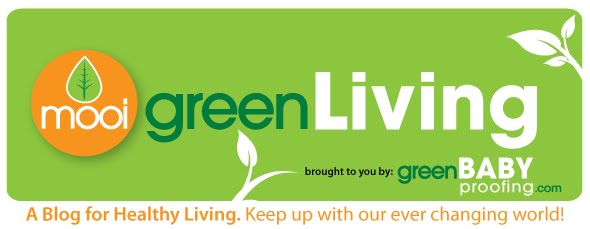
Submitted by Elizabeth Borelli, Nubius Organics
On January 19th the FDA released a cautionary statement naming controversial chemical Bisphenol A (BPA) as a safety risk. To that end, they’ve allocated $30 million for independent research in a first-time non-industry-funded study in an effort to learn more. This action comes after more than a year of media controversy over the safety of the chemical, especially since it’s so prevalent in baby bottles. Consumer pressure and slowed sales spurred the six largest plastic baby bottle manufacturers to voluntarily remove BPA from baby bottles sold in the U.S., but the chemical is still widely prevalent in consumer food and beverage containers.
Exactly what is BPA? You’ve heard the letters, you know it’s bad – but the findings have sounded inconsistent – and since all the media controversy died down maybe it’s not really much of a problem. Actually BPA is a one of the world's highest production-volume chemicals and has been used for 40 years in plastic items, such as drinking glasses, baby bottles, food and beverage containers, and dental sealants. Independent studies have conclusively shown adverse health effects of BPA on the brain and reproductive system, as well as metabolic diseases in laboratory animals.
Just how serious is this problem? In the human body, BPA mimics the hormone estrogen. Studies have tied the compound to reproductive abnormalities and increased risks of cancer and diabetes. Infants and children are thought to be particularly vulnerable to any adverse effects because their reproductive organs and ability to metabolize chemicals are not completely formed. In a statement in 2008, the FDA said BPA was safe in materials that come into contact with food, to which critics accused the agency of using outdated studies that had been sponsored by the chemical industry, so this new cautionary statement is a huge step in direction of consumer safety over corporate pressure.
Why isn’t this information more widely available? There was considerable media coverage over the BPA baby bottle controversy last year, which has since died down as the FDA would not render studies conclusive. Scientist and expert Frederick vom Saal explains the situation like this . "The Japanese industry voluntarily removed BPA from can linings 10 years ago and thus, were able to reduce exposure to BPA by 50 percent. Last year, Congress asked companies in the United States to take similar actions; however, companies have made no move toward compliance.” In spite of this and tarried by pressure from chemical corporation lobbyists, the FDA still has no official plan to ban BPA from consumer goods.
The new FDA position is consistent with that of the National Toxicology Program made two years ago. The tremendous industry pressure on the FDA by lobbyists concerning independent findings means that consumers need to research the source of any information reassuring them that BPA is just fine. It’s often difficult to discern the actual source of misleading information you see in an ad or on a web site, since it’s generally pretty well covered, but when you wonder why someone would pay so much to publish these confusing findings in the first place, it’s worth considering the motive of the source before believing them.
What can you do? Choose smart plastics (see icons below) and avoid putting them in the microwave (where they can release dangerous chemicals when heated) or the dishwasher (where they can degrade in the heat and excessive moisture).
Safer Plastic Choices: Select safe plastics that use polyethylene (#1, #2, and #4) and polypropylene (#5), which require the use of less toxic additives. They also are non-chlorinated.




Some to Avoid: Avoid choosing products that use polyvinyl chloride (#3), polystyrene (#6), and polycarbonate (#7) which typically contains bisphenol A (BPA) and is found in baby bottles or sippy cups.









